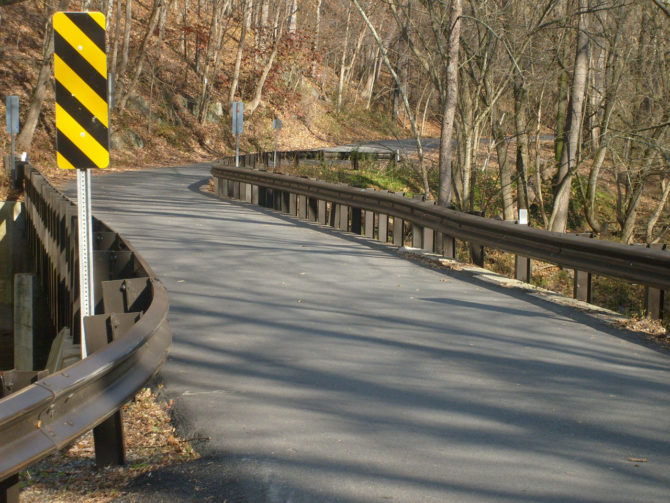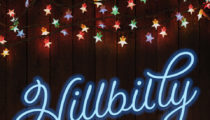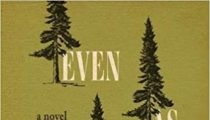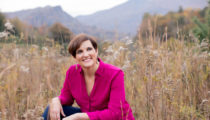Knox Thompson first crossed paths with the man who would…

Any City
Mom came downstairs, her eyes looking like she’d been crying all morning. I was still in bed, in the unfinished basement that was now my room. The leggings under my sweatpants itched. She barely ran the heat anymore. Getting out of bed meant getting ready for work—putting on the yellow Main Street Auto Spa t-shirt, the khaki shorts smudged with car grease. On the shirt, a turkey detailed a Corvette with a rag. It was always a conversation start if I forgot to take it off after my shift.
“They’re taking the townhouse,” Mom said. After spending our childhood in an apartment, my brother and I called it a house, even though it really was just a townhouse. After the divorce, Mom bought it on the cheap. Too good to be true.
Her work clothes were the same ones I’d always remembered her wearing, her haircut made her look like the Joan of Arc we watched in my experimental film class a couple years before. She’d worn her hair that way since my brother and I were born, said we never stopped grabbing it, so she just cut it off.
“Who’s taking the house?” I asked, sitting up in bed.
“The bank.”
“They can do that?”
“I’ve been behind,” Mom said. “But I thought I could catch up.”
She looked around the basement, my room since I’d moved back home. Cardboard boxes filled with books and clothes covered the floor. Two years and I still hadn’t unpacked. I’d moved home after the car accident I’d gotten in right after graduating college—a windy back road, a broken jaw, a reconstructed orbital that swelled when the temperature dropped. When I was able to talk and move and eat again, the only steady work—besides the odd jobs I picked up for Riley—was at the new car wash. I hadn’t planned on living there for long, just until I figured out my next move—maybe Philadelphia or New York, somewhere I could try acting or maybe make a film, I thought. But I’d never lived anywhere but my hometown. I didn’t get on an airplane until I was almost twenty-three.
Then things changed. Dad had a heart attack. Then he got sober. It swerved all of us, him leaving Mom for a grad student and fleeing up the I-81 to Richmond. She’d tried leaving him a few times over the years, had us packed up in the backseat, duffle bags between me and Kent. But for some reason, she couldn’t—even after some of the nights he’d come home and terrorize us, have us cowering in the back bedroom of the apartment like scared animals. After he left her, I didn’t feel like I could leave, too.
“He had it out for me,” Mom said.
“Who?”
“He knew this would happen, the economy.”
She didn’t name him anymore. During the divorce, she never mentioned the hurt he’d done to all of us over the years. She wanted the past to remain hidden, placid. Irreconcilable differences had been the official grounds submitted.
“You can’t make the payments?” I said.
“I’m trying to catch up.” She grabbed an unused extension cord off the floor and wrapped it into a neat coil.
“I can pay rent,” I said. I had car wash money saved, a little more from the demo jobs I’d worked with Riley throughout the fall. I’d been attempting to save enough to move out, but then my truck would blow a tire or I’d spent it all at the bar and have to start over again.
“We should start thinking about the house as already gone,” she said. “That’s what the man at the bank told me.”
***
At the car wash, they were cutting shifts. Some days I showed up in my yellow t-shirt and they’d let me clock in for an hour before sending me home. Washing your car was one of the first things that could go. The second thing, my manager said, was cosmetic surgery. “Cigarette sales remain strong,” he said, smoking one outside the office. Almost every day people came to speak with him, resume in hand, only to get turned away. The jobs available in our area were jobs that didn’t actually exist, that weren’t jobs at all. Signs planted in the ground at traffic lights announced: Work Available! Call Now! Turn on the television or check online, and it was like the world was collapsing.
Recession.
Depression.
Foreclosure.
Bubble.
Occupy.
Crisis.
Unemployment.
One night, Mom and I ate boxed mac and cheese and watched a movie together. A tradition. The walls of the townhouse were bare. The living room was boxed, ready to be moved. Mom had found a cheap one-bedroom above the flower shop off Main Street. Now, she was just counting days.
I was a little buzzed, but I didn’t think Mom could tell. We were watching a black-and-white film, something foreign I’d found at the library. French boys in a schoolhouse gave the headmaster grief. I never drank in front of Mom. She didn’t keep alcohol in the house, either. But during our movie nights, I kept a bottle of half-proof vodka in the back of the toilet tank—something I’d started doing after the accident. Dad had hidden his beers under the kitchen sink the times when he wasn’t trying too hard to quit. I got off the couch and went to the bathroom to take a drink.
“I’ve been thinking I should move,” I said when I got back.
“Move where?”
“Somewhere else, maybe up to DC or Philly.”
“Oh,” Mom said. “What would you do?”
“I don’t know. Maybe do some auditions.”
“Well you’d need a real job. You have to make money.”
“I’d find something. Maybe marketing or something.”
“I just can’t support you,” she said. “You know that.”
“Kent will still be across town,” I said. I couldn’t remember the last time my brother had visited. Before his best friend jumped off a bridge, before yard signs and end time talks.
“I know you have to go. I know.”
“There’s just nothing here for me, Mom.”
***
I checked on Kent across town. He barely left his apartment now that he’d lost his job at the dining hall. Downsizing, they said. He sat in his room eating ice cream and playing video games, and for money, I knew he had some scheme online involving gift cards. He’d stopped talking to anyone after Braxton left a note blaming his friends for his suicide. When I was still in school I’d stop in for lunch between classes and rehearsals sometimes to shoot the shit with the two of them, have them sneak me meals I couldn’t afford.
At his apartment, his roommate let me in. Kent’s room was ripe, pungent. Bottles of piss were lined up on his dresser. Finding a place to sit meant stepping over soiled clothes and dinner plates. In a year, he’d put on a hundred pounds and didn’t look like the brother I’d grown up with anymore. I never knew what to say when I came to visit.
Kent sat at his computer, wheezing. He mashed keys with one hand, shifted his mouse with the other. On the screen, a tiny army moved across a wasteland and attacked another tiny army. Empty ice cream pints were stacked next to his monitor. Before my first surgery, Kent visited me once. He told me I looked like the Elephant Man, my face drooped and caved in. He started crying when I explained how they’d have to remove the broken bones in my face to fix it.
“Mom said she hasn’t seen you in a while,” I said.
“It’s hard getting over there without a car.”
“You know I can always come pick you up.”
“Yeah, okay,” Kent said. He hadn’t looked at me once since I’d been in his room.
“You’d have to go check on her if I move,” I said, picking an action figure off the floor. It was the main character of a space video game Kent and I had been obsessed with growing up. Both of us had been in shock when the hero took off the space helmet, revealing that she was actually a woman.
“The bank’s taking the house,” I said.
“What do you mean?”
“Mom can’t make the payments,” I said.
Kent stopped clicking at his game. The army on the computer screen stopped moving. “I barely get enough unemployment right now to survive.”
“She didn’t say anything about having to support her.”
“I couldn’t support her if I wanted.”
“She’s just worried about you,” I said.
“I’m fine. I’m just living my life.”
***
During college, I did a couple Beckett plays, and a Shepard one about brothers that people liked me in. The grad student who’d directed me had moved to Texas hoping to shoot commercials. She messaged me about the theater scene, the swimming, the Mexican food. She was done with theater. She had a job on a television show, getting actors coffee and wrangling extras. She said we all needed to move down there—that we could sleep on her couch. Six months later, she was headed to Los Angeles. After the car accident, I didn’t do anything for a long time. I tried writing a play that took place in a small town, but I could never really get started.
I’d stayed around my hometown initially because I couldn’t afford college anywhere else. There had been people from my high school who had left, but they always managed to end up back home. Eventually the idea of moving away to be some kind of actor or artist seemed fickle and false, a fantasy I’d be using to avoid real life. There was nothing I wanted in my hometown, only everything I felt a responsibility toward.
***
Mom had an interview for a second job lined up. Jockeying a register, second shift—something she could do after her day job as an administrative assistant at the college (one of the only reasons I got into school). The fast food restaurants where she’d dropped an application had accused her of being over-qualified. She knew someone at the drug store, someone who knew what kind of spot she was in.
Mom liked to tell this story about driving a forklift after college. She was making good money working the floor, waiting for Dad to graduate. Eventually he just dropped out, but still, she followed him. Her supervisor had tried to get her to stay on, give her a raise. She was the best forklift driver they’d had in years and the only one who kept passing the drug tests. She’d tell me it was the best job she’d ever worked, but she knew that it was time to leave, time to find something she could do with her degree. What she found was office work, a way of supporting her husband while he found his footing building sets for theaters.
Later that night when she got home, my empties were still on the kitchen counter. I’d passed out on the couch, woke when the chimes on the front door sounded. She considered the cans, crushed and halved. She dropped her office tote to the floor, then climbed the stairs to her room without a word. I moved the cans to the recycling bin, making sure I covered them with a newspaper. I mouthwashed, made sure my eyes weren’t bloodshot. I’d only had a few, but I’d broken Mom’s one rule—no alcohol in the house.
I knocked on her door, cracking it open a little. The reading light next to her bed was on. “What?” she said through tears.
“Can I come in?”
“What do you need?”
“I just wanted to see how the interview went,” I said.
I pushed the door open a little more, stood in the doorframe. I’d remembered Dad standing in the same doorway, drunk, looking down at Mom on her knees protecting us, my brother and I crying behind her. I wasn’t sad about losing the house when I thought about that. I moved then, inside the room. The civil war history books that were usually stacked on her nightstand were boxed beside the bed. The pictures of my brother and I were missing from the nightstand. She sat cross-legged with a tissue in hand.
“How much have you been drinking?” she asked.
“Mom,” I said, sighing. “I just had a couple. I’m fine.”
“If you’re drunk you should go stay at Riley’s.”
“I’m not drunk,” I said. “I fell asleep.”
“The girl interviewing me knew you from high school,” she said. “I almost died. Can you believe that? She asked about you. Tonya. She said she was a cheerleader while you were on the football team. Do you remember her?”
“Yeah, I remember her, Mom.”
“She said that I have a good chance at the job because I know Brian.”
“So why are you upset?”
“Oh, because,” she said, touching the tissue to her eyes. “Because I didn’t think this would ever be my life. But here it is.”
***
Riley called. He had good news and bad news. The bad news was that Dad had contacted him, wanted to know what his sons were doing. The good news was that Riley had some jobs he needed an extra body on—enough to keep us both busy for a long while.
I met him down at the bar where his daughter had been a waitress during college before she died. Drunk driver on I-81, coming back from a Dave Matthews concert at the Civic Center in Roanoke. A memorial plaque hung in her memory at the back of the bar, near the bathrooms, and every time we stopped in for lunch he made sure to polish it with a shirtsleeve on the way back from taking a piss. It hadn’t surprised anyone much when he camped outside my hospital room for almost three days.
Riley picked at a basket of fries, a Diet Coke in front of him, the only guy at the bar without a beer. His Virginia Tech ball cap saved the seat beside him. In the beginning, before Dad bailed, Riley had been his sponsor. He was the only man I’d ever seen muscle Dad, a memory from my childhood, at some barbeque or birthday party. The image of my father pinned on the ground was still so vivid. When Riley was around I always felt safe.
I ordered a beer with my burger without Riley saying a word. He didn’t care about being in a bar, or if I drank. Whenever I asked him how he knew about his problem, he always said he’d always known. Burying his only daughter was enough for him to call it quits.
“Talked to your mom the other night,” Riley said.
“What’d she say?” I said.
“Said you were thinking about running away to be actor.”
“Yeah, maybe.”
“What if I told you I’d have enough work to keep you busy full-time? You still going?”
“Doing what?”
“Flipping foreclosures for the banks. A little paint, a little demo. Contract work, mostly. You know how many houses they’re pulling every day right now?”
“Yeah, I know,” I said.
“Hey, I’m sorry,” Riley said, adjusting his ball cap. “I didn’t mean to sound insensitive—she’s better off out of that place, anyway. You quit scrubbing tires and stick around and I’ll put you on full-time.”
When Riley was still drinking, he and my Dad would come down to the same bar and scheme their way out of some money—Snap-on tools, industrial vacuum cleaners, football betting. The two of them split after Riley realized Dad was sleeping with his wife. In the end, it was Riley who had to let Mom know that Dad had left for Richmond, information he’d received from his ex-wife. After that, I think he felt some obligation to all of us, out of some shared guilt or shame or something.
“So where you going to hide out?” Riley asked.
“Thinking about Austin,” I said.
Riley considered my answer, took a sip from his Diet Coke through a straw. “I’d understand if you left. Nothing much here.”
I said, “I can’t work for you for the rest of my life.”
“What a fate that would be,” Riley said, chuckling. “But who says you have to go now? With your mom and all. Maybe work a little with me, save some money. Maybe things will look different when you’re working. Just think about it, yeah?”
Our bartender came over to check on us, asked Riley if he wanted another Diet Coke. He looked at her a little too long, then smiled. He said, “I’ll spin off the planet if I have any more.” The bartender rolled her shoulders back, faked a smile, looked for her barback. I wanted to tell her it wasn’t what she thought, that Riley wasn’t meaning to look at her the way he was. She could have been anyone working behind the bar and he’d have fallen into that trance, daydreaming his daughter back home, alive again. It was then that I knew how he saw me, finally.
***
A few days later, Mom and I packed the truck. We moved the first batch of boxes to a storage unit out near the industrial park. I chipped in fifty bucks to help with the first month’s rent. The space was too small for all the boxes. Mom had kept our artwork from grade school, our old sports jerseys, yearbooks, old toys. What we didn’t pack we put in a Goodwill pile or a trash pile. We sat with our knees on the concrete and picked through the boxes until we each had a box of things we wanted to keep, things we thought my brother might want, too.
I kept a picture I’d drawn of “The Big Hurt” Frank Thomas in third grade. My old McCoy’s Auto baseball jersey. My Nirvana Nevermind CD. My Legion of Doom wrestling figurines. A postcard Dad had sent Mom from the Epcot Center the year I was born. The kid would love the palm trees. Stay warm. Love, Daniel. The rest of my childhood was headed for the dump.
We moved the rest of mom’s stuff into her new one- bedroom above the flower shop. During the day, the shop only listened to songs sung in French and you could hear the foreign words through the floorboards. With the second job at the drug store, mom wouldn’t be home enough for it to really matter, she learned. A couple of days after she’d finished moving in they left a vase of daffodils on her steps, welcoming her.
After that, I tried messaging my old director about Austin. Never got a response. Keep Austin Weird. Bat City. Live Music Capital of the World. Longhorn Country. Violet Crown. Hippie Haven. I did some research, but really, it was just the idea of something different, something new. It was an idea. Looking back, it could have been any city.
I put my two weeks in at the car wash. They told me not to worry about the weeks, but asked if I could please return my t-shirt. I had a thousand dollars in the bank, and a truck filled with boxes and bags of clothes. I called Riley and told him he’d need to find somebody else for the job.
***
Dad called a couple days later. Riley had called and told him I was leaving. It was the first time I’d heard his cigarette-soaked voice since right after my accident.
“Riley told me you’re drinking a lot,” Dad said.
“Nothing I can’t handle,” I said.
“Okay, tough guy.”
I thought about hanging up. The last time I’d seen him I’d been in a hospital bed. I’d waved him away. “Is that why you called?”
“Just called to say be safe on the roads.”
“Will do.”
“Okay then.”
***
I tried not to think about my conversation with Dad when I told Mom I was leaving. Me and him, we weren’t the same person. Not at all. I was different.
Then one morning, Mom and I walked out to my truck in the parking lot of the flower shop. She’d gotten me a bag full of snacks, cookies, drinks from the drug store. She hugged me and told me to call her when I stopped, to let her know I was still alive.
“And you know where you’re staying?” Mom said.
“Yeah,” I lied. “It’s all set up.”
“You can always come back.”
“I know,” I said, holding back tears. “It’s a good thing, getting to see the world.”
“We’ll be here cheering for you.”
“I love you, Mom,” I said.
I waited for her to walk back up the stairs. At the door she waited for my car to leave the parking lot, waving goodbye as I drove off.
***
The plan was to drive until I got tired, stop somewhere, and then sleep. The directions I’d printed out at the library were folded in a journal mom had gotten me from the dollar store, along with some snacks for the road. But twenty-one hours to Austin meant I could make it in a day.
As I sped out of the mountains, leaving Virginia, I howled like a wolf with the window down. Nobody would know me in Texas. I could become anybody, anything. I could become the person I thought I wanted to become: actor, filmmaker, writer, artist.
I would become somebody down there.
I wouldn’t come back. I wouldn’t look back.
I hit Knoxville, Nashville, and then Memphis before dark. I pushed my little truck, testing its endurance. My old life—my Virginia life—fell away the farther I got across the country. After twelve hours on the road, I stopped at a rest stop outside of Fayetteville. Even at night, it was still in the high eighties out there. I made a bed in the cab of the truck with my comforter and pillows and blanket, took off my jeans. I kept the windows up because of the bugs, then cracked them because I couldn’t breathe. I closed my eyes and tried to sleep.
Mosquitos swarmed. Tagged my legs, my arms. One of them even got into my underwear. The welts grew. I kept my eyes closed imitating sleep, but couldn’t stop itching. A mosquito landed on my eyebrow and I smacked myself in the face hard enough that my ears rang after.
I didn’t put my jeans back on. Just started the truck in my underwear and kept going. I turned the radio up, slapped myself a couple times. I had a little coffee left. Mostly, on the drive through the Bible Belt it’d been God and the market crash, but that night I got something good, one of those throwback stations playing songs I recognized, classic rock songs that were familiar, but still kind of strange. Songs that reminded me of Dad teaching me to drive.
The highway was dark and straight and hypnotic. The sky began going from dark purple to grey to light blue. I turned the music down. The film over the night melted away. I listened to the earth moving underneath me. I was out of coffee, but I didn’t stop. I still had so far to go. I told myself I wasn’t scared. But I didn’t want to give myself the chance to stop and think about what was in that other direction.



